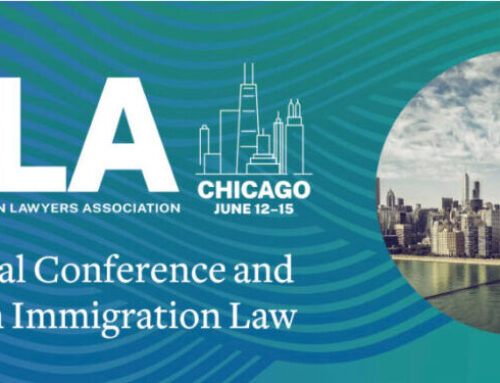The U.S. Citizenship and Immigration Services (USCIS) has made updates to its Policy Manual to provide clearer guidelines on determining who is subject to the “Public Charge” ground of inadmissibility. This ground of inadmissibility ensures that non-citizens entering the United States or applying for certain immigration benefits are financially self-sufficient and unlikely to rely on government assistance.
According to section 212(a)(4) of the Immigration and Nationality Act (INA), any applicant who, at the time of application for admission or adjustment of status is likely at any time to become a public charge, is inadmissible. Although the INA does not define the term “public charge,” it does indicate that certain factors must be considered when determining whether a non-citizen is at any time likely to become a public charge.
The recent updates to the USCIS Policy Manual are designed to make it easier for immigration officers and applicants to understand the criteria for evaluating whether an individual might be considered a “Public Charge.” These updates aim to bring greater clarity and consistency to the assessment process, streamlining the decision-making process for both USCIS officers and applicants.
In the context of the Public Charge ground of inadmissibility, applicants seeking to enter the U.S. or adjust their immigration status may be subject to scrutiny regarding their potential reliance on certain public benefits, such as Medicaid, housing assistance, or Supplemental Nutrition Assistance Program (SNAP). The assessment considers factors such as age, health, financial resources, education, skills, and family status to determine if an individual is likely to become dependent on government assistance.
It is important to note that not all immigrants or applicants are subject to the Public Charge evaluation. Certain categories, such as refugees, asylees, and certain humanitarian-based visa holders, are generally exempt from this assessment.
By updating its Policy Manual, USCIS aims to provide a more transparent and consistent approach to the Public Charge determination process. The updates seek to facilitate better communication between USCIS officers and applicants, ensuring that the evaluation is conducted fairly and based on clear and objective criteria.
These changes in the Policy Manual align with the agency’s goal of maintaining the integrity of the U.S. immigration system while upholding fairness and transparency. The USCIS is committed to administering immigration benefits in a manner that serves the best interests of the United States and supports the success and self-sufficiency of immigrants coming to the country.
Read the official announcement from USCIS.
About the Author
Nadia Deans Kalata
Nadia Deans Kalata is Senior Counsel at Garvish Immigration Law Group, LLC in Atlanta, Georgia. Born and raised in Kingston, Jamaica, Nadia developed her passion for immigration law through her own personal experience with the immigration process in the United States. As a result, she has a unique perspective and understanding of her clients’ concerns and the challenges they face when dealing with the U.S. immigration system. Nadia has over fifteen years of experience in corporate immigration.







